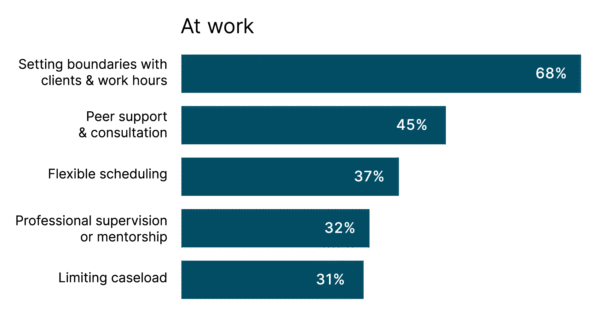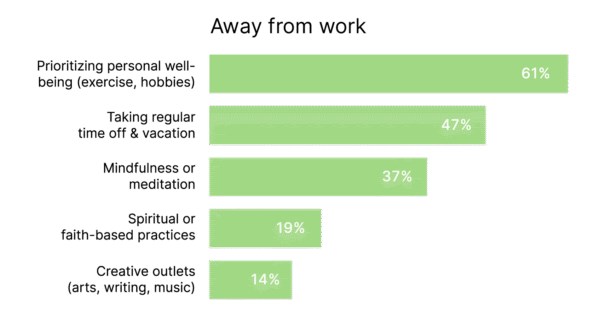The Future of Therapy
What 1,300+ therapists predict about the future of therapy. Discover how AI, burnout, access barriers, and whole-person care will reshape mental healthcare over the next five years.

Report overview
Therapy is at a crossroads.
We surveyed over 1,300 therapists to understand their realities, challenges, and hopes for the future. The Future of Therapy report uncovers a profession under strain yet dedicated to whole-person care, addressing systemic issues affecting millions.
Inside the report, you’ll see how therapists across the country are managing AI adoption, preventing burnout, expanding care access, and delivering whole-person care.

“What I find most meaningful about my work is witnessing the moment someone realizes they’re not broken, just wired for survival…Seeing clients shift from shame to self-compassion and from coping to truly healing, that’s what keeps me doing this work.”
– Yelena Gidenko, PhD, LCMHCS, BC-TMH
AI is already here
40% of therapists are using AI tools today for at least one task.
Therapists use AI most often to help with administrative tasks like scheduling and reminders (30%), note-taking (23%), or client intake (21%).
Still, therapists express concerns about client data privacy (79%) and losing human connection (75%).
Therapists share their views on how AI can help, and what they expect by 2030.

“I believe AI will significantly aid in note-taking, treatment planning, and enable counselors to focus on their primary role.”
– Kimberly S Campbell, LPC
Burnout is at crisis levels
A staggering 82% of therapists report burnout, with nearly 1 in 3 experiencing it at extreme levels.
Top drivers of burnout include low pay (56%), insurance frustrations (53%), and administrative overload (52%).
Only 32% believe burnout will improve in the next five years.
But therapists shared with us their go-to strategies to prevent burnout – tools to use both at work and away from work.

Achieving practice harmony requires boundaries and systems at work, and self-care away from work.


Access and equity remain elusive
99% of therapists say systemic barriers prevent clients from receiving quality care.
The most cited obstacles to care include inadequate insurance coverage (83%), rural mental health deserts (60%), and disability-related challenges (53%).
Just 22% expect meaningful progress on equity by 2030. But they shared their vision for better access to mental healthcare.



Whole-person care is the future, but not yet the norm.
94% of therapists say whole-person care is essential, but only about half practice this way consistently.
The barriers are big – and 77% of therapists say insurance rules are the biggest of all.
Despite this, 70% believe they are uniquely positioned to lead the shift toward integrated, client-centered care.

“We need community outpatient clinics where therapists collaborate with other professionals and clients find community. The private practice model is very restrictive and isolating for all involved.”
– Laurie MacDonald, MSW, LCSW

Discover the full findings in the Future of Therapy report.
Discover the key challenges and opportunities in mental health with our comprehensive report. We gathered insights from over 1,300 therapists to highlight common struggles and new opportunities to improve care.


